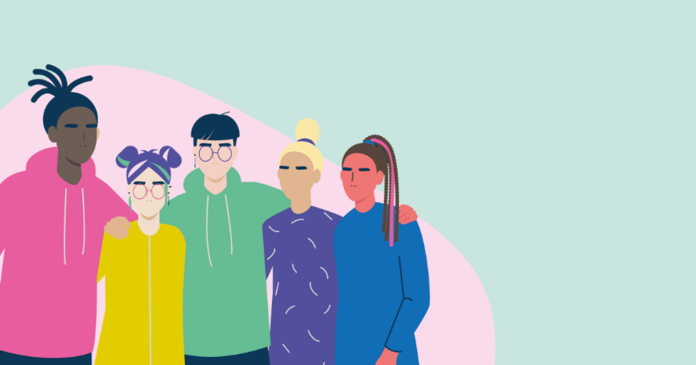Young people in Greater Manchester are reporting an improvement in hope and optimism for their future, marking what many will consider a welcome return to pre-pandemic levels.
However, the results from the latest #BeeWell survey, which heard from over 38,000 young people aged 12-15 years in more than 250 schools across Greater Manchester, Hampshire, Isle of Wight, Portsmouth and Southampton, also revealed noteworthy and consistent inequalities in wellbeing across gender and sexuality.
Focusing on time trends in the Greater Manchester survey data, 83% of young people felt hopeful and optimistic about their future in 2023, compared to just 72% of young people during the height of the COVID-19 pandemic in 2020.
The #BeeWell programme, co-founded by The University of Manchester, The Gregson Family Foundation and Anna Freud, and developed in partnership with the Greater Manchester Combined Authority, has been listening to the voices of young people since 2021, and seeks to make the wellbeing of young people everybody’s business. To date, the #BeeWell survey has been completed by more than 85,000 young people.
“The rise in hope and optimism is a much-needed good news story for young people’s mental health and wellbeing. But that is not to say that the job is done. Far from it. Indeed, there are still so many young people struggling in silence, and they deserve everyone’s support. That is why we look forward to continuing our work with partners and collaborators, so that together we can identify what help and support is needed, and take action.” said James Robertson, #BeeWell National Director
Overall, this year’s #BeeWell survey results, which analysed data on young people from across all 14 Local Authorities in Greater Manchester, Hampshire, Isle of Wight, Portsmouth and Southampton, found that young people are generally satisfied with their lives. However, there are noteworthy inequalities in life satisfaction, mental wellbeing and emotional difficulties across gender and sexuality.
41.2% of young people who identify as lesbian or gay reported a high level of emotional difficulties (e.g. worrying a lot, feeling unhappy, having problems sleeping). This figure rose to 44.5% for young people who identify as bisexual or pansexual. This is compared to 12.1% of heterosexual young people. High scores in this area could indicate that young people may require additional, preventative support
When considering gender differences, 22% of cisgender girls reported a high level of emotional difficulties compared with 6% of cisgender boys. The proportion reporting high levels of emotional difficulties rose to 33.9% for transgender and gender diverse young people and 21% for those questioning their gender
These inequalities are also seen in life satisfaction and mental wellbeing scores, with gay and lesbian young people experiencing the lowest wellbeing and reporting that they are least satisfied with their lives, followed closely by bisexual and pansexual young people, and those who identify as transgender and gender-diverse







